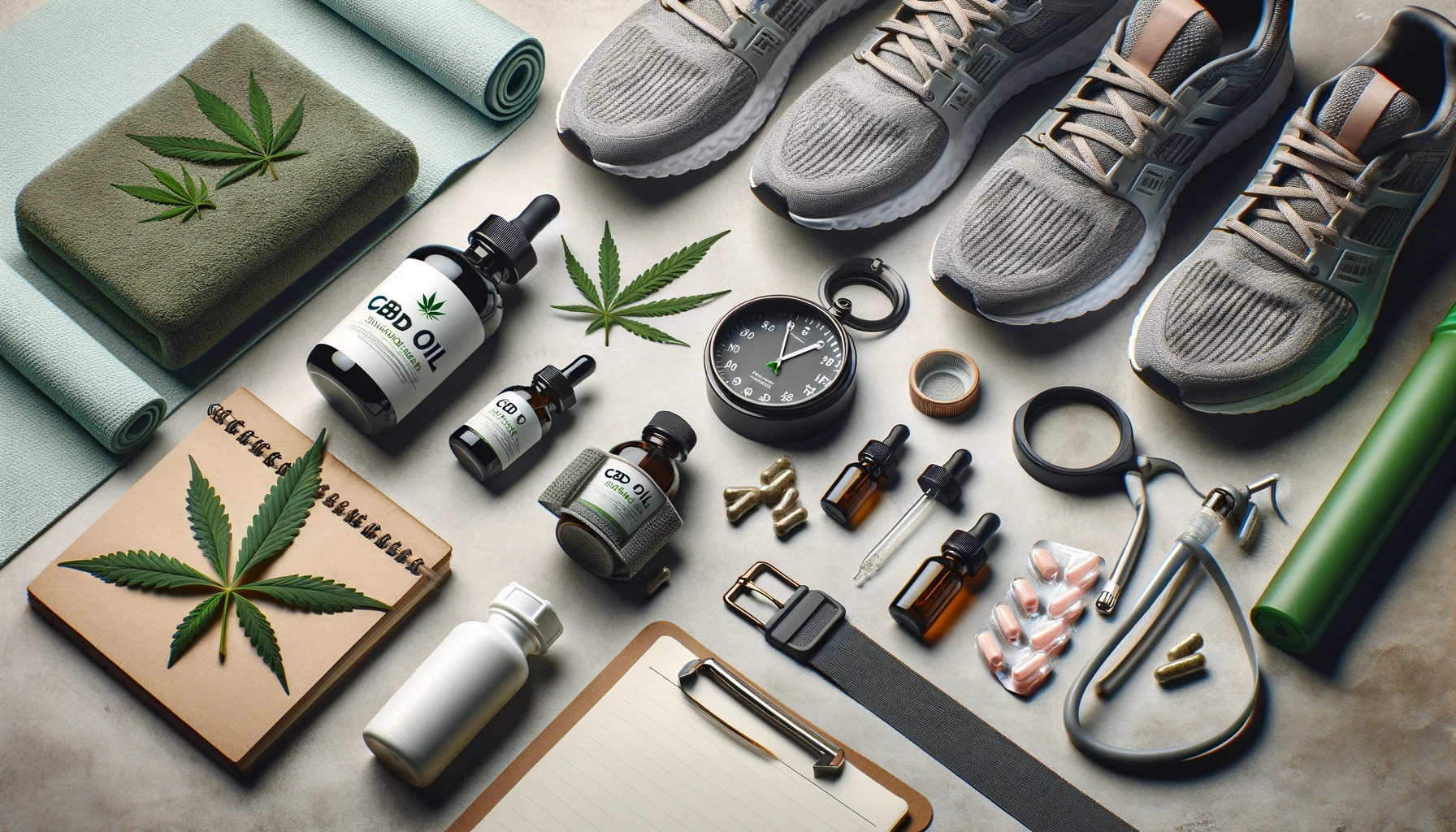1. Introduction
In recent years, CBD (Cannabidiol) has emerged as a popular supplement among athletes, hailed for its potential benefits in pain management, recovery, and stress reduction. This guide delves into the use of CBD in sports, examining its benefits, legal status, and usage guidelines, while providing a disclaimer on its use in athletics.
2. What is CBD?
Definition and Key Properties of CBD
CBD is a non-psychoactive compound found in cannabis plants, known for its therapeutic properties without the “high” typically associated with cannabis.
CBD vs. THC: Understanding the Differences
Unlike THC (Tetrahydrocannabinol), CBD does not produce psychoactive effects, making it a suitable option for athletes who want to avoid the intoxicating effects of marijuana.
Sources and Forms of CBD Products
CBD is available in various forms, including oils, capsules, topicals, and edibles, each catering to different preferences and usage needs.
3. Benefits of CBD for Athletes
Pain Management and Recovery
CBD is often used by athletes for its potential to alleviate pain and aid in recovery post-training or competition.
Stress and Anxiety Reduction
Its potential anxiolytic properties make CBD a popular choice for athletes looking to manage stress and anxiety related to performance.
Sleep Improvement and Restorative Benefits
CBD may also aid in improving sleep quality, which is crucial for an athlete’s recovery and overall performance.
Anti-inflammatory Properties
The anti-inflammatory effects of CBD can be beneficial in reducing inflammation caused by intense physical activity.
4. Legal Status of CBD in Sports
CBD and Anti-Doping Regulations
Understanding the legal status of CBD, especially concerning anti-doping regulations, is crucial for athletes.
Understanding WADA’s Stance on CBD
The World Anti-Doping Agency (WADA) removed CBD from its list of prohibited substances, but THC remains banned.
Navigating National and International Sporting Regulations
Athletes need to be aware of national and international regulations regarding CBD use in sports, as these can vary.
5. Using CBD as an Athlete
How to Incorporate CBD into Training and Recovery
Guidance on integrating CBD into regular training and recovery routines for optimal benefits.
Dosage Guidelines for Athletes
Dosage can vary based on factors like body weight, the intensity of exercise, and individual metabolism.
Choosing the Right CBD Products
Selecting high-quality, third-party-tested CBD products is crucial to ensure safety and effectiveness.
6. Safety and Side Effects
Potential Side Effects of CBD
While CBD is generally well-tolerated, potential side effects include fatigue, changes in appetite, and gastrointestinal discomfort.
Interactions with Medications and Supplements
CBD can interact with certain medications and supplements, making it important to consult healthcare professionals.
Guidelines for Safe Use of CBD in Sports
Recommendations for safe and responsible use of CBD in athletic settings.
7. Scientific Research and Studies on CBD in Athletics
Overview of Current Research
Research on CBD in sports has primarily focused on its pain-relieving, anti-inflammatory, and anxiolytic effects. Studies have examined how CBD might aid in muscle recovery, reduce exercise-induced inflammation, and alleviate stress and anxiety related to athletic performance.
Evidence on Efficacy and Performance Enhancement
While evidence suggests the potential benefits of CBD for recovery and well-being, direct links to performance enhancement are less clear. For instance, while CBD may help in better sleep and reduced anxiety, which are crucial for an athlete’s performance, it does not directly enhance physical abilities like strength or endurance.
Limitations and Areas for Future Research
The limitations of current research include small sample sizes, a lack of long-term studies, and varied dosing and formulation of CBD products. Future research needs to address these gaps and explore specific applications of CBD in different sports and athletic disciplines.
8. Athlete Testimonials and Case Studies
Personal Experiences of Athletes Using CBD
Many athletes, from professional to amateur, have publicly shared their positive experiences with CBD, particularly in managing pain, improving recovery times, and dealing with competition-related stress.
How CBD Has Impacted Athletic Performance and Recovery
Athletes report varied impacts of CBD on their performance and recovery. Some highlight improved sleep patterns and reduced recovery time, while others emphasize its role in managing chronic pain conditions, allowing them to continue training and competing.
Diverse Perspectives in the Sporting Community
The sporting community’s perspective on CBD ranges from strong advocacy to skepticism. While some athletes and coaches embrace CBD for its potential benefits, others caution against its use due to the lack of comprehensive research and clear regulatory guidelines.
9. Conclusion
CBD presents a promising, yet complex, option for athletes looking to enhance recovery and manage the physical and mental stresses of training and competition. However, athletes considering CBD should be mindful of the legal landscape, potential side effects, and the current limitations in research. It is advisable to consult with healthcare professionals and comply with sporting regulations when incorporating CBD into their regimen.
10. Frequently Asked Questions (FAQs)
- What are the best CBD products for athletes?
- The “best” CBD products depend on individual needs, but athletes generally prefer products with third-party testing, clear labeling, and specific formulations tailored for sports recovery.
- Can using CBD result in a failed drug test?
- Pure CBD should not result in a failed drug test. However, products with trace amounts of THC might. Athletes should choose products carefully, preferably opting for THC-free or isolated forms.
- How should athletes start using CBD?
- Athletes should start with low doses, monitor their bodies’ responses, and consult healthcare providers, particularly if they are subject to drug testing or have existing health concerns.

Meet the CBDOilWow Editorial Team, a collective of CBD experts dedicated to unraveling the world of cannabidiol. With a passion for wellness and a commitment to providing the latest insights, they serve as your trusted guides in exploring the potential of CBD, ensuring you make informed choices for a healthier, more balanced life.

Leave a Reply